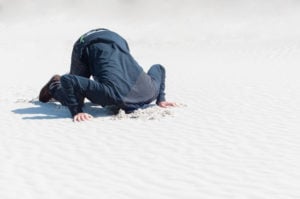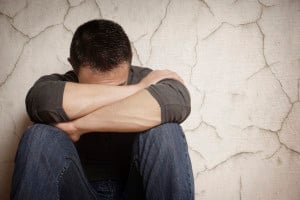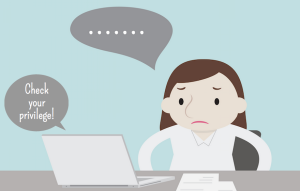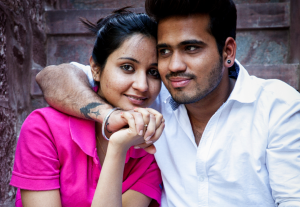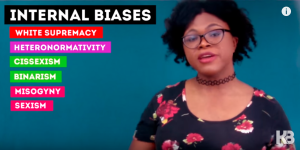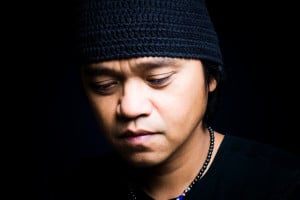
Cropped shot of a person with a half-smile, turned to face the camera.
(Content Note: sexual violence, including descriptions)
If you follow my work, you’ll know I write about sexual assault.
A lot.
I’ve written about how the idea of “the friendzone” ties into rape culture and about how rape culture manifests on campuses. I’ve written about how to decide whether you should report your rape and about why medical exams can’t disprove rape. I’ve discussed why incarcerating rapists alone won’t eradicate rape culture. I shared why I identify as a victim, not a survivor, and why I commemorate the anniversary of my rape.
In all of those articles and more, I draw on my own experiences to illustrate my arguments. This means that I end up talking about my own rape a great deal, on the most public platform ever – the big, wide Internet.
And a question I’m often asked is why I talk about my rape so openly when I know we live in a society that often condemns people for doing so.
I believe in writing. I believe in discussion. Exchanging ideas and experiences helps us empathize with one another. It has the power to change minds, change people, and ultimately, change society.
Because of this, my decision to be open about experiencing sexual assault isn’t one I made lightly. I knew it would impact me, and I knew it would change how I’m treated by those around me.
But because people are curious about this decision, I’m explaining it now, on a fittingly public platform.
A Note on Not Speaking Out
Before I continue, I want to clarify something crucial: This article is about my personal reasons for being open about my rape.
I’m not trying to shame people into sharing their stories. I’m not even trying to encourage people to share their stories, because speaking about trauma isn’t a strategy that works for everyone.
I am, however, trying to encourage people to think broadly about why people do or don’t discuss their experiences of assault.
There are lots of awful stereotypes about people who don’t share their personal stories about sexual assault. Speaking out about sexual assault is often seen as a “brave” thing to do. While I understand that speaking out about rape is courageous, this idea implies that those who don’t share their stories are cowardly.
And that’s simply not fair. This is one of the reasons why I hate being called “brave.”
We all heal differently, and sometimes speaking out about our trauma isn’t good for us because it’s not what we really want to do.
Personally, I’ve found taking care of oneself to be an incredibly brave act. Sometimes, taking care of yourself looks like speaking out. Sometimes it looks like navigating trauma privately.
But more than that, we don’t have to be brave. We aren’t obligated to react to our trauma with courage. Our trauma is ours, and it’s our choice how we react to it.
Here are some personal reasons why I reacted to my sexual assault by talking about it.
1. I Needed to Hear Stories Like Mine When I Was Younger
I was first assaulted when I was twelve.
As you can only imagine, it was an incredibly confusing experience for me. I felt guilty because I didn’t say “no” at first. I was taught that if someone wanted to touch you inappropriately, you should say “no” and move away.
But I didn’t say “no” until I realized what was happening. And I couldn’t move away because I was being pinned down. I always felt guilty for that.
I now know that consent is not the absence of a “no,” but an informed and enthusiastic “yes.” I know that sex without consent is sexual assault. I know that there are many, many people like me who’ve experienced assault in a very similar way. I know that their experiences are valid, and I know that mine is, too.
But I wish that I knew that at the tender age of twelve, before I was tossed into a tornado of self-hate and loneliness.
Back then, I needed to hear stories like mine.
Nearly ten years later, I still need to hear stories like mine. I need to see my story reflected in others. I need to know that there are bad days and good days, and that the good days outweigh the bad. I need to hear that some people understand a little bit about how I feel. I need to know that I can survive and that better things are still to come.
I don’t believe that survivors and victims owe their stories to their community. Nobody is entitled to our stories.
But contributing my story is important to me, because it means that I could possibly help someone out there who needs to know they’re not alone.
And maybe, just maybe, I can further my healing by turning my experience into a form of comfort for someone else.
2. I Want to Challenge Rape Culture
The actual act of sexual assault was horrendous – but it certainly wasn’t the only traumatizing thing about being assaulted.
What was traumatizing was being victim-blamed and sex-shamed because of my assault. I was traumatized by the pressure to report my assault despite the fact that the reporting process is notoriously ineffective and painful. I was traumatized by those who tokenize, discard, and doubt people who’ve been sexually assaulted.
It wasn’t my rapist who did this, but other people. These attitudes were actually normalized in the society around me: They were promoted through sex education, my church, the media, and my community. The way I was treated before and after my rape illustrates how rape culture works.
I tell my story because I want people to see how rape culture affected me. I want them to identify rape culture when they see it – and I want them to work with me to challenge it.
Telling my story is also a way of challenging stereotypes and rape myths.
We’re often taught that rape happens in one specific way. The myth of the “ideal rape” is perpetuated by society, so much so that we believe a lot of stereotypes about rape.
My stories often challenge those stereotypes because I’m not the so-called “perfect victim,” and my assaults never took the form of the “stranger-in-the-bushes” narrative.
So I tell my story to remind people that all narratives are important.
Yes, I’m queer. Yes, I’ve been assaulted by people who aren’t men. Yes, I’ve been assaulted in my sleep. Yes, I’ve been assaulted by people who I trusted and loved dearly. Yes, my rapists have never been convicted.
No, none of those factors make my rape any less traumatizing or any less real.
The more that people see my non-traditional rape narratives, the more they realize why the generalizations and myths surrounding rape culture are false and harmful.
Rape culture is a tapestry of attitudes and behaviors that make the world unsafe for so many of us. If my story can pick at a loose thread and shake up some of those attitudes, maybe we can start to unravel it together.
3. My Story Is My Own
For me, there’s been something beautiful and healing about telling a story. Taking thoughts or images and putting them into words has always had a therapeutic effect on me.
For a very long time – seven years, in fact – I told hardly anyone about my sexual assault, other than four friends and a social worker. It felt like something I wasn’t allowed to talk about, something I didn’t know how to talk about.
In many ways, my silence was a form of denial: I didn’t want to discuss what happened to me because it felt like talking about it made it real.
But my heartache was real whether I spoke about it or not.
My trauma resulted in very painful, very real experiences. Strange, unusual PTSD symptoms. Nightmares. Self-harm that often took the form of overworking and undereating. A great deal of shame and internalized victim-blaming.
While it’s not the case for everyone, I knew I needed to acknowledge my trauma by speaking out if I ever wanted to get better.
Telling my story – verbally or through writing – has given me space to reflect on what’s happened, how far I’ve come, and how I’m processing the trauma.
It’s helped me reclaim my trauma. My rapist might have destroyed my sense of comfort, but he can never take my story away – because that’s mine, and it will always be mine.
***
A few days ago, I was harassed on the Internet – badly – because of an article I wrote about sleeping with my rapist after he had assaulted me.
On the same day, I received an e-mail from a young woman who read that same article. She thanked me for it and said it brought her a great deal of comfort because she was in the exact same position.
And although being complimented on my writing always scares me (thank you, Imposter Syndrome!), her e-mail made it feel worth the trolling.
Hearing that my story resonated with someone else touched me on two levels: Firstly, it helped her know that she was not alone. And secondly, it reminded me that I’m not alone. Through storytelling, two strangers on opposite sides of the Earth comforted each other.
There’s something magical about that.
The legions of trolls who’ve descended on me over the years can never take away my healing. They can’t make me forget about the people I’ve connected with through storytelling. And they can never make me regret being open about my sexual assault.
[do_widget id=’text-101′]
Sian Ferguson is a Contributing Writer for Everyday Feminism and full-time freelance writer based in South Africa. Her work has been featured on various sites, including Ravishly, MassRoots, Matador Network and more. She’s particularly interested in writing about queer issues, misogyny, healing after sexual trauma and rape culture. You can follow her on Twitter and Instagram. Read her articles here.
Search our 3000+ articles!
Read our articles about:
Our online racial justice training
Used by hundreds of universities, non-profits, and businesses.
Click to learn more







